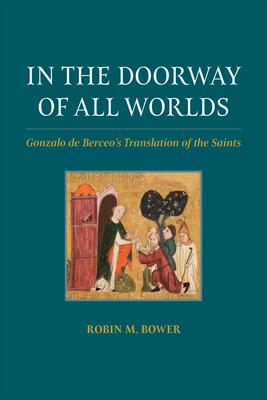The thirteenth-century poet Gonzalo de Berceo is the first named author of Old Spanish letters and the most prolific contributor to the emergence of the body of learned vernacular verse known as the mester de clereca.
In the Doorway of All Worlds focuses on the four hagiographies Berceo produced as a unified body of poetic expression and world-building. Robin M. Bower traces the poet's intricate juxtaposition of contraries to shed light on a poetic world that will innovate a deceptively simple poetic vernacular and elevate its capacity to express nuance, power, and mystery.
The book examines the entanglements that bind formal and lexical choices, the inscription of performance sites and audiences, and problematic source authority. It argues that Berceo's elaboration of a poetic vernacular was wholly enmeshed in the immediate human, experiential world and the diverse cultural, religious, linguistic, and literary contexts that framed it. The book also highlights how Berceo invented a literary vernacular that befits the spoken idiom not only for the crafting of learned fictions, but for giving linguistic shape to the ineffable. In the Doorway of All Worlds ultimately reveals how Berceo freed the meanings trapped in relics, shrines, and the impenetrable texts from which he translated the saints to circulate in a new time.
